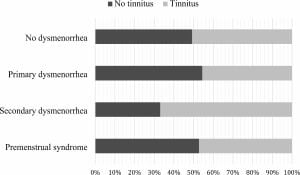The European Union has been at the forefront of various geopolitical discussions, particularly about member nations and their potential integration. Recently, significant voices within the EU have expressed optimistic views on the accession of Ukraine, which could provide various economic benefits to the bloc.
During a visit to Kyiv on December 1, European Council President Antonio Costa stated, "The membership of Ukraine to the European Union could have a positive effect..." He emphasized how Ukraine's inclusion would contribute to enhancing the EU's competitiveness, particularly through its rich natural resources and capabilities across various sectors such as energy, agriculture, and technology.
Ukraine's push for EU membership gained momentum after the Russian invasion, which intensified desires for closer ties with Europe. Costa praised the reform efforts made by Ukraine during its challenging circumstances, calling them impressive. He noted, "You are writing a new playbook on how to undertake deep reforms..." Costa promised Ukraine continued support as it aims to join the EU family.
He elaborated on the economic synergies expected from this relationship, asserting, "Ukraine's contribution, once it becomes a member state, will be very positive for EU competitiveness." The energy potential, agricultural output, and advancements Ukraine can bring to the table will undoubtedly aid the EU, particularly as it faces competitive challenges from major global economies like the United States and China.
But, on the other side of the equation, Georgia's path appears laden with obstacles as it seeks EU membership. The German Foreign Ministry's portrayal of current events implies widespread public support for this integration among Georgians — particularly highlighted during the recent protests against the government's decision to suspend EU membership talks until 2028.
German spokesperson Sebastian Fischer highlighted the people's aspirations, stating, "The massive protests... show very clearly... many people in Georgia still want a future in the European Union." The protestors' desire reflects an ambition to align more closely with EU standards and values, contrasting strongly with the government's more reticent approach.
Notably, the Georgian Dream Party remains dominant politically, but recent elections have raised eyebrows among EU ministers. They have asserted these elections were not conducted fairly, signaling displeasure with the governing party's objectives and alignment with EU principles.
Further complicate matters, the Georgian government's recent legal adjustments, including the Law on Transparency of Foreign Influence, have drawn skepticism from the EU. This law mirrors similar legislation seen unfavorably by the EU, often associated with authoritarian regimes. The European Commission's latest report explicitly states, "Georgia's decision to adopt the law on foreign influence... does not reflect... commitment to the path of the EU."
This tension demonstrates the shifting dynamics within the region as nations vie for EU membership, and it spotlights the significant hurdles Georgia must overcome to remain on the EU's radar. The EU has warned it won't initiate accession talks until the country pivots away from controversial legislative moves.
While Ukraine seems primed for progress—aiming to open clusters of accession negotiations by June 2025—Georgia grapples with public pushback against governmental policies perceived to hinder its EU aspirations. The contrasting situations speak volumes about the unique challenges each country faces concerning their European ambitions.
And as the clock ticks down to the proposed negotiation timelines, both nations symbolize the broader determinism of post-Soviet states seeking stability, economic integration, and afar transformative relationships with the European Union.
Against this backdrop, the ruling parties must weigh their future against public sentiment—particularly for Georgia, where citizens are clamoring for change. Georgia’s political maneuvering, internal dissent, and EU expectations create uncertainty, juxtaposed against Ukraine's calculated drive for membership, bolstered by its natural and economic resources.
Whether these different pathways will converge or diverge remains to be seen, but one thing's for certain: the EU's relationship with its eastern neighbors is set to shape the geopolitical narrative moving forward.



